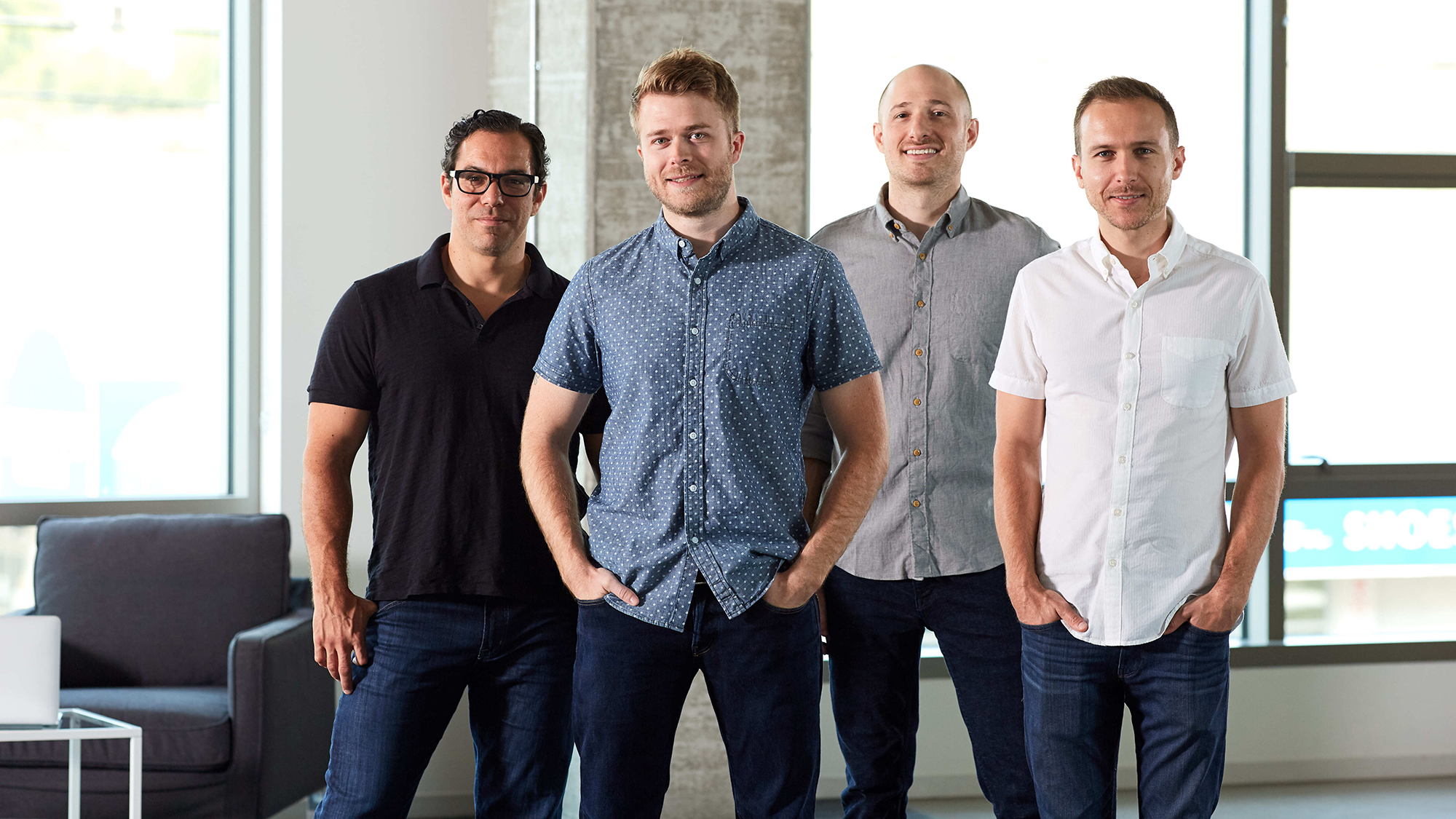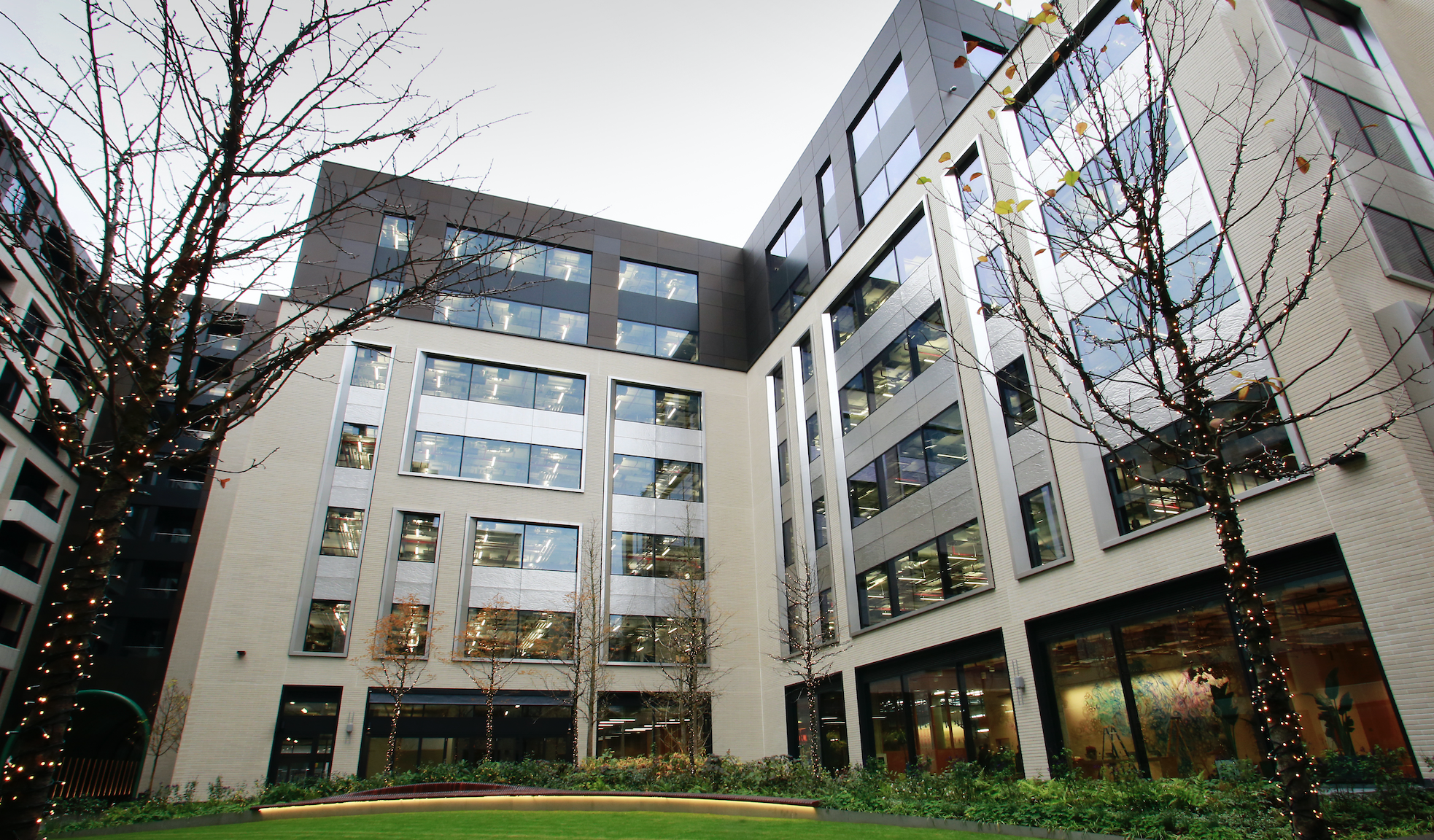Outreach: The startup that came back from the brink
How a cash strapped recruitment company became a unicorn with a new business model


By 2015, Manny Medina had reached a point where he felt the only way he could save his failing business was to sell all his office equipment. His company, Outreach, was struggling to find buyers for its recruitment software and after just one year of operation, it didn’t have enough cash left to cover legal fees.
Out of desperation, Medina and his small team began tagging things on eBay, calculating how much they could get for their computers. They quickly realised the answer was “not much”.
“It was one of those moments where everybody is shaken and freaking out and not thinking rationally,” Medina, who co-founded Outreach and remains the CEO, tells IT Pro. “Nobody wants to do it, but we’re all thinking ‘what? We fold and then go get jobs at Microsoft?’ No one wants to do that. That’s when we sat down and talked through giving it another shot.”
What happened next is the startup version of the phoenix from the flames – or unicorn from the flames, if you will – as Outreach moved to a new business model and, five years later, is worth over a billion dollars.
The pivot
Originally Outreach was an online recruitment business using used technology to search the marketplace for IT and digital talent. While the tech side of it worked, according to Medina, both the sales and the marketing teams struggled to get the company going and within a year it was almost out of money.
“We were about two months away from being out of cash,” Medina explains. “The co-founders turned to each other and were like, ‘we shouldn’t be using tech to solve the marketing problem, we should be using tech to just drive more demand’.
“I have a background in sales, so I voted for using direct sales as a way to generate traffic. We decided if we drove 10 times more meetings per representative we could dig ourselves out of the problem.”
Get the ITPro daily newsletter
Sign up today and you will receive a free copy of our Future Focus 2025 report - the leading guidance on AI, cybersecurity and other IT challenges as per 700+ senior executives
The company didn’t have the resources to throw more people at the problem, however, and its three employees needed to sell as much as a team of twenty to bring in enough cash. To help, Medina and his team built an AI engine that could send out emails with personalised messages and then follow up on any response it got. Before long, they realised the automated call system was generating ten times more potential job interviews and pulling in a reply rate of almost 50% on cold emails.
“That was pretty unheard of at the time,” Median explains. “The problem with that is we didn’t have the capacity to follow up on all those meetings and actually close business. So I started talking to agency recruiters, telling them, ‘look, I can sell you meetings instead of candidates’.”
The agencies Medina reached out to were sceptical at first, questioning why he would do that, but also curious as to how he was able to generate so many? When he explained the AI engine and how it worked, no one was interested in paying for the meetings – they wanted the software.
Venture capitalists
The initial business model struggled to attract investment. Although Medina managed to source enough to get going, there was a lot of rejection from potential backers. Rajeev Batra, a venture capitalist from Mayfield, was one of those who weren’t keen on the idea and suggested it wouldn’t work based on his experience of the market – but he was left impressed by Medina.
Batra was even more impressed after Outreach pivoted, but by then, the company had grown profitable so quickly that Medina considered not raising capital at all. Batra was persistent, sensing that the team was onto something with lots of potential and eventually wore Medina down in August 2015.
“I convinced Manny to accelerate the product roadmap and GTM of the company by capitalising it properly and partnering with us to go for it,” Batra tells IT Pro. “I felt they could build a platform company. We made a compelling offer to him and the company with the promise that we would do everything we can to help them succeed.”
For Batra, partnering with Outreach was one of the best, and luckiest, decisions he ever made. For Medina, getting rebuffed for the initial idea turned out to be a financial blessing in disguise.
“It could very well have been that if we were successful as the original company, we could have been like [hiring marketplace] Vettery, which was sold to [HR consultancy and hiring firm] Adecco for $100 million,” Medina suggests. “We’re now worth $1.1 billion (£883.6 million). Even if we had a good outcome, it would have been ten times lower than what it is right now. Life is perverse that way and now Rajeev thinks we should thank him for not previously investing.”
Bobby Hellard is ITPro's Reviews Editor and has worked on CloudPro and ChannelPro since 2018. In his time at ITPro, Bobby has covered stories for all the major technology companies, such as Apple, Microsoft, Amazon and Facebook, and regularly attends industry-leading events such as AWS Re:Invent and Google Cloud Next.
Bobby mainly covers hardware reviews, but you will also recognize him as the face of many of our video reviews of laptops and smartphones.
-
 Third time lucky? Microsoft finally begins roll-out of controversial Recall feature
Third time lucky? Microsoft finally begins roll-out of controversial Recall featureNews The Windows Recall feature has been plagued by setbacks and backlash from security professionals
By Emma Woollacott Published
-
 The UK government wants quantum technology out of the lab and in the hands of enterprises
The UK government wants quantum technology out of the lab and in the hands of enterprisesNews The UK government has unveiled plans to invest £121 million in quantum computing projects in an effort to drive real-world applications and adoption rates.
By Emma Woollacott Published
-
 Quantexa becomes UK's first unicorn of 2023 with $129 million investment
Quantexa becomes UK's first unicorn of 2023 with $129 million investmentNews The news of Quantexa’s unicorn status comes amid a period of strained conditions for high-growth tech firms
By Ross Kelly Published
-
 Inside Mozilla’s mission to champion 'trustworthy' AI development
Inside Mozilla’s mission to champion 'trustworthy' AI developmentNews Amid a rapid acceleration in generative AI, Mozilla has launched a new startup to champion trust, transparency, and responsibility
By Ross Kelly Published
-
 UK's AI startup scene has grown 600% over past decade
UK's AI startup scene has grown 600% over past decadeNews The country's £32.76 billion AI sector brought in £2.41 billion worth of investment in 2020 alone, according to Tech Nation
By Bobby Hellard Published
-
London Tech Week: London can rival Silicon Valley, says deputy mayor
News Close proximity of lawmakers, tech firms and investors 'is a recipe for success'
By Bobby Hellard Published
-
 Mayor of London hails capital's AI firms as he reveals smart city roadmap
Mayor of London hails capital's AI firms as he reveals smart city roadmapNews Sadiq Khan outlines plans to use more data and urges startups to solve social challenges
By Joe Curtis Published
-
 UK startups fly to Australia to share smart city innovations
UK startups fly to Australia to share smart city innovationsNews Innovate UK's tech delegation identifies three key smart city obstacles Australia and the UK share
By Lee Bell Published
-
 Deep learning startup Chattermill raises £600k
Deep learning startup Chattermill raises £600kNews The AI company plans to spend it on investing in new technology and expanding its team
By Zach Marzouk Published
-
 Facebook's new London office will host a startup incubator
Facebook's new London office will host a startup incubatorNews The office will open in 2018 and create 800 jobs
By Zach Marzouk Published